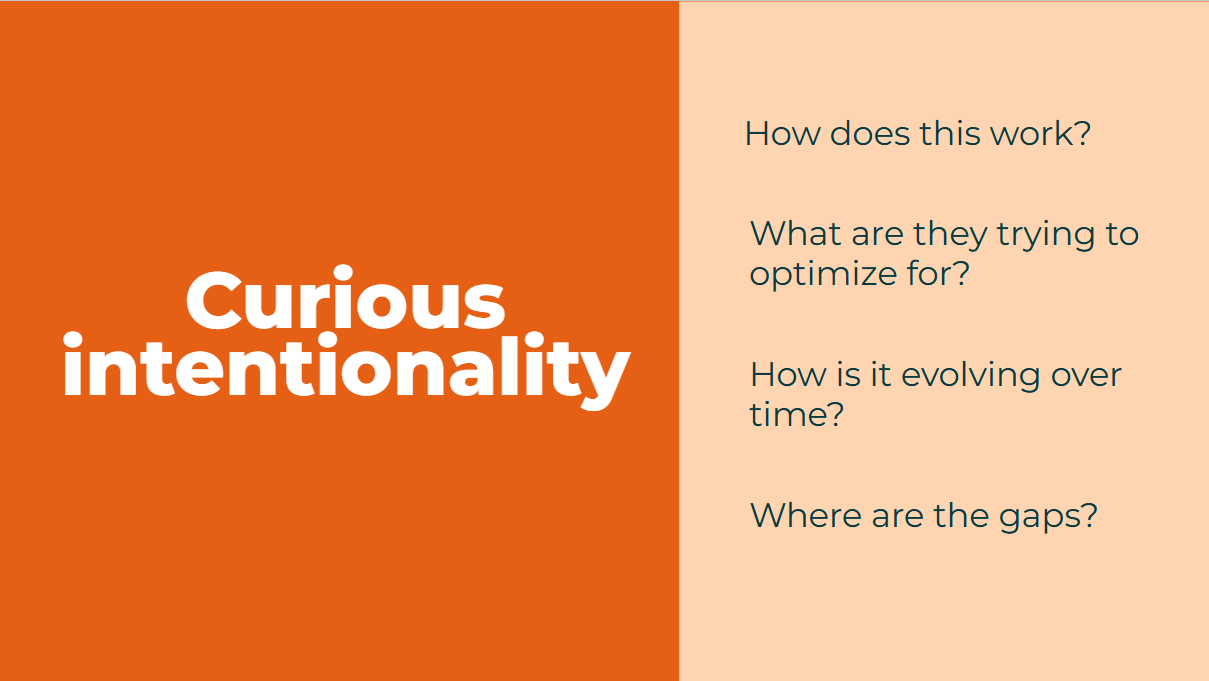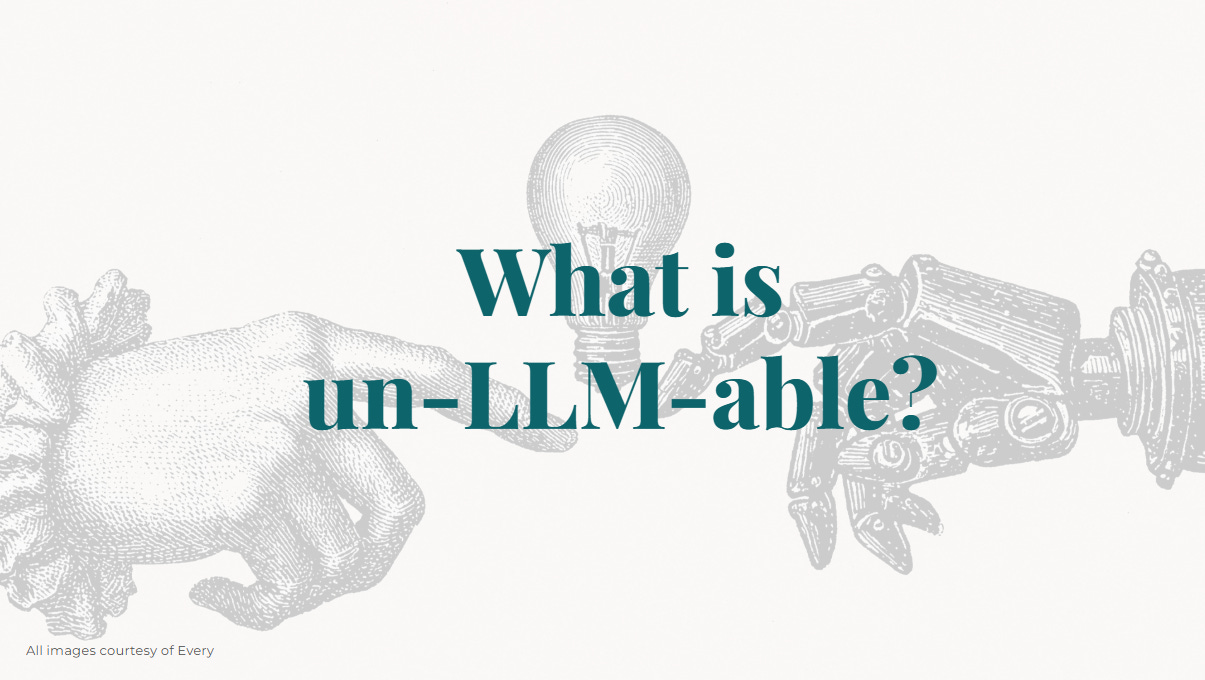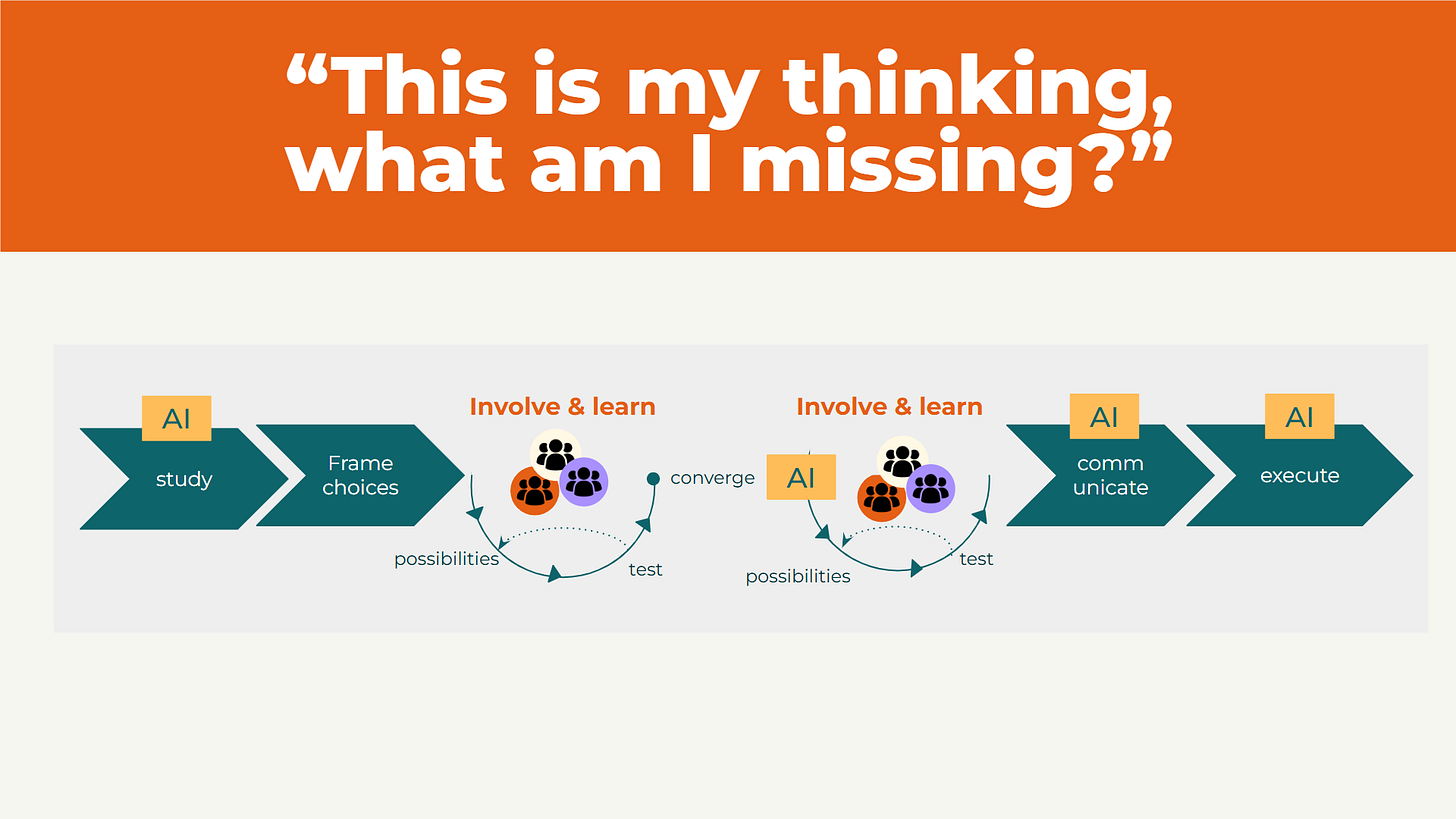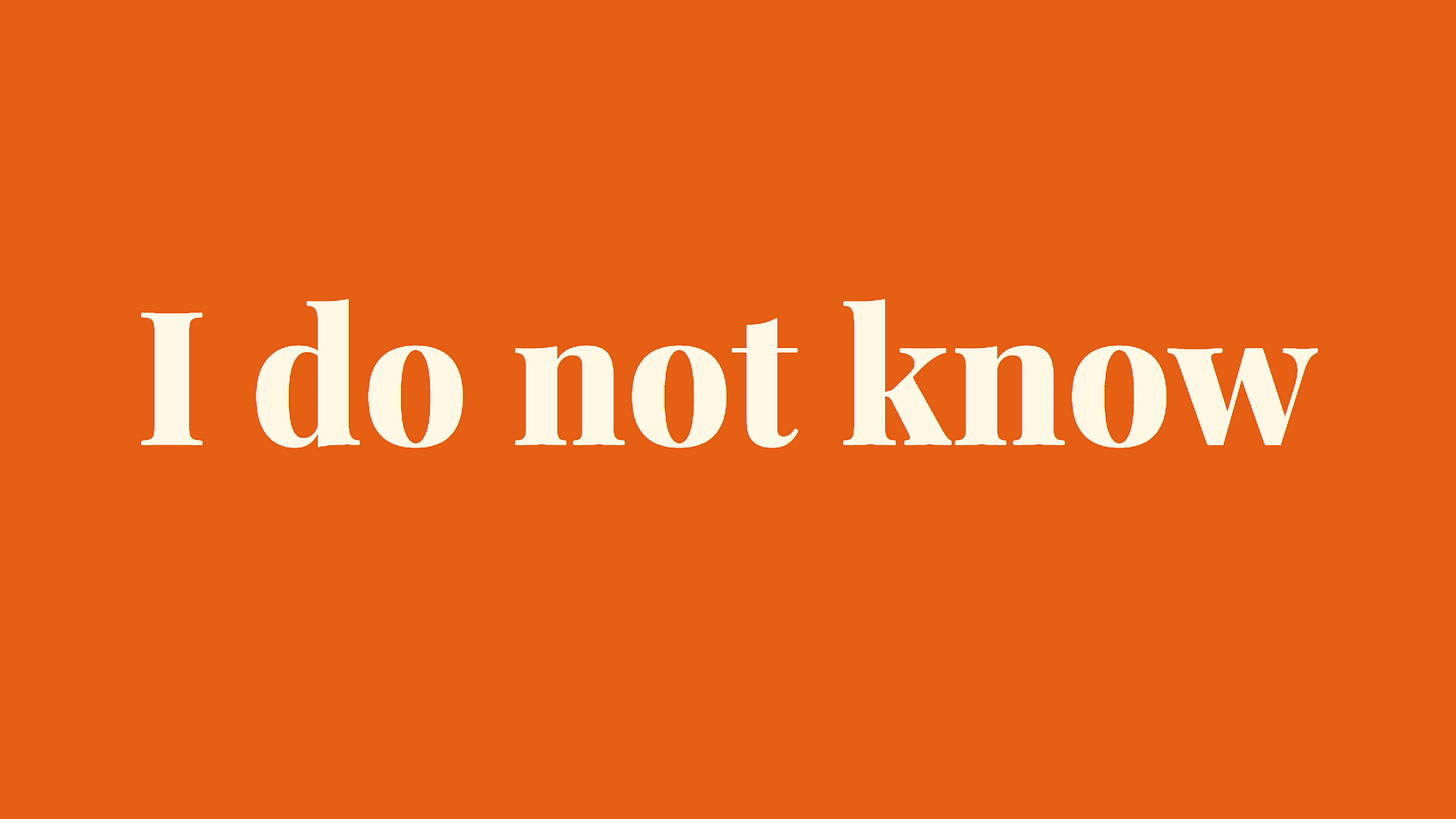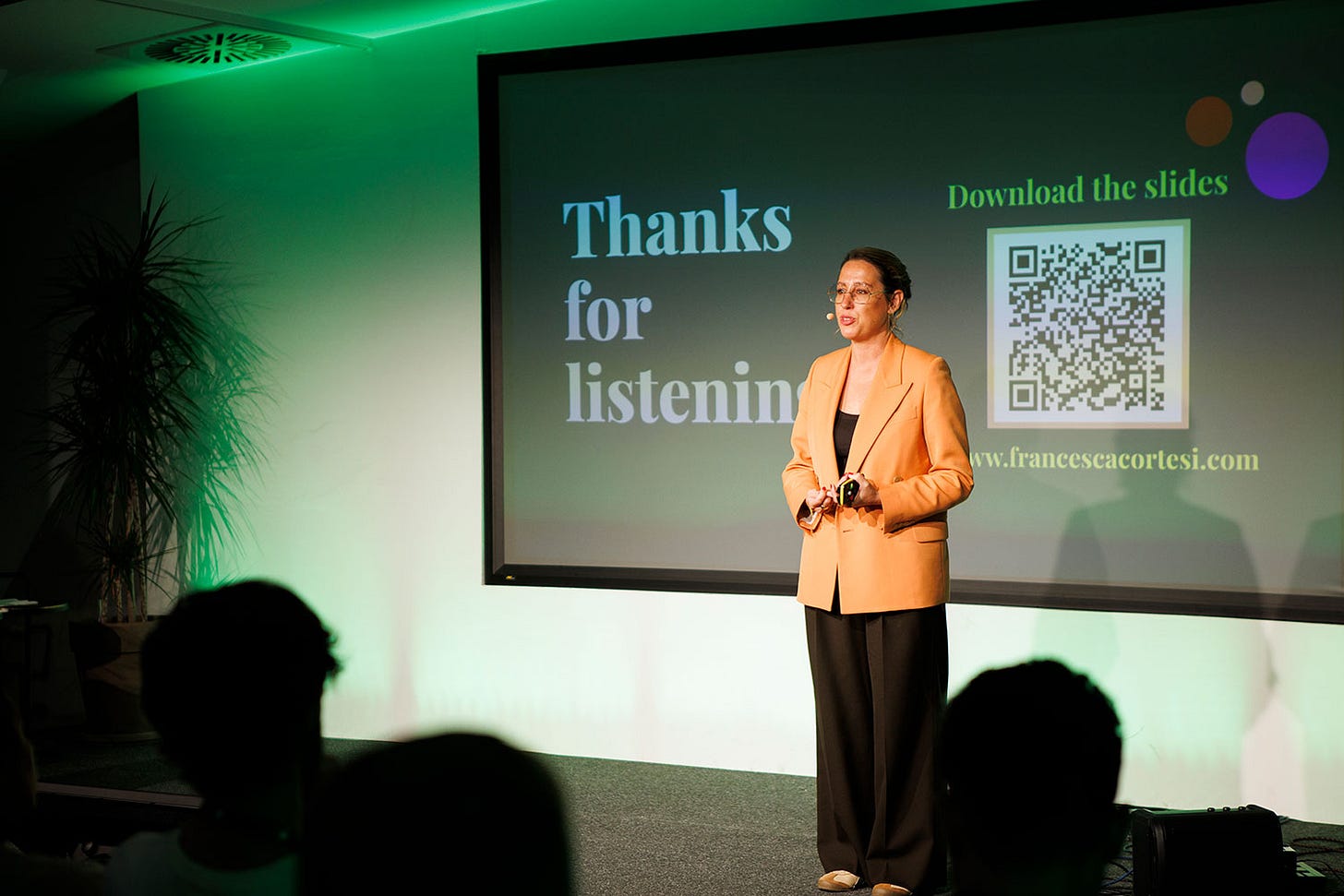How to build un-AI-able skills (and why "I don't know" is your superpower)
The closing keynote everyone needed to hear at ProductLab Conference 2025 [Slides included]
Six months of research. 100+ slides. Dozens of books, podcasts, and expert conversations. And Francesca Cortesi stood on stage at ProductLab Conference 2025 and said the three words no keynote speaker is supposed to say:
“I don’t know.”
Not once, but repeatedly. In front of 300 product managers who came looking for answers about surviving the AI revolution.
And it was exactly what we needed to hear.
The panic we’re all feeling
When Daniele Ronca (Conference’s founder) asked Francesca to close the conference with a talk about AI, she had 30 seconds of panic. Then clarity: she didn’t want to talk about the tech. She wanted to talk about how we should relate to the tech.
Because here’s what we’re all dealing with: emotions ranging from excitement about AI’s possibilities to anxiety about mass layoffs. The tech is here to stay. We can’t control that. But we can control how we respond to it.
Francesca dove deep into research, expecting to emerge with all the answers. Instead, she found something more valuable: a framework for navigating uncertainty when nobody actually knows what’s coming.
The skill that lasts 18 months (not 5 years)
Remember when the lifetime of a professional skill was 5 years? That felt manageable. You could invest time, build expertise, and reasonably expect it to pay off.
Now? 18 months.
Don’t believe it? Remember prompt engineers? Those $200K+ jobs that were supposed to be the golden ticket? They disappeared almost as fast as they appeared. Not because the skill became less important, but because AI companies optimized for mass adoption and made prompting dramatically easier.
This leads to Francesca’s first major insight: The real skill is learning and unlearning. Not what you know today, but how quickly you can learn tomorrow.
The framework: Curious intentionality
Instead of running frantically trying to learn everything (the image of overwhelmed people running resonated with everyone), Francesca advocates for strategic curiosity. She calls it “curious intentionality” and breaks it down into five questions:
1. How does this actually work? LLMs are pre-trained on existing data. They can’t “think” – they give us the illusion of thinking. They can’t think outside the box because they only use the data they have. Understanding these limitations is power.
2. What are they optimizing for? Big AI companies are optimizing for mass consumption, not perfection. This is why hallucinations aren’t going away. They don’t care about fixing them – they care about usage.
3. How is it evolving? Watch the trajectory, not just the current state. Remember AI-generated videos six months ago versus now? The improvement curve tells you where to place your bets.
4. Where are the gaps? This is where your opportunity lives. What can’t AI do? What won’t it be able to do?
5. What should I focus on? Francesca’s advice mirrors product strategy: don’t spread yourself thin. Pick your eggs, choose your baskets intentionally. Skip an innovation wave? You’ll be fine if you’re paying attention. Don’t let FOMO drive you – let intentional curiosity guide you.
What is “un-LLM-able”?
This question became Francesca’s north star. In product strategy, you look for things that are hard to copy – sustainable competitive advantages. The same principle applies to your career.
Her answer centers on one word: Trust.
And here’s why it matters: AI hallucinations aren’t getting fixed. The big companies aren’t even trying. They want adoption, not accuracy. As fake images multiply and skepticism grows, the human who can be trusted becomes invaluable.
Francesca breaks trust into three components:
1. Credibility
Deliver what you say you’ll deliver. Simple, but foundational.
2. Value consistency
This is where Francesca showed the Jason Knight meme that hit hard: teams rushing to build AI features while basic customer needs go unmet. The customers waiting? They won’t wait forever. Either they’ll build it themselves, or someone else will build it for them.
The question isn’t “Can we add AI to this?” It’s “Are we creating actual value for our customers?”
3. Collaboration
Here’s where Francesca shared a hard-won lesson. Six or seven years ago, when stakeholders wanted to build the wrong AI feature, she’d try to prove them wrong. It never worked. Too much ego, too much reputation on the line.
Her new approach: “This is my thinking. What am I missing?”
Instead of collecting data to convince people, she collects data, presents it transparently, and invites collaboration. She involves stakeholders in the thinking process rather than trying to change their minds.
The process that works
Francesca shared her framework for navigating uncertainty (which, let’s be honest, is all of product management):
Study → Frame the question → Explore possibilities → Test → Converge
And critically: Involve and learn at every stage.
Then repeat with AI: Study AI → Frame choices around AI → Explore AI possibilities → Test with AI → Converge
Communication and execution happen throughout, but the key is continuous learning and stakeholder involvement.
Just to let you know, this is taking time.
Why “I don’t know” is the answer
Standing on stage, admitting uncertainty could have felt like weakness. Instead, it was the most powerful moment of the conference.
Because Francesca normalized what we’re all feeling: We’re ALL learning. We’re ALL on a learning curve.
Her presentation wasn’t a set of answers. It was a process she’d gone through – and is still going through. When she realized she didn’t know and still had to speak about it, her “product brain” kicked in.
What do you do when you don’t know? You dig into the question.
The takeaway
As AI rapidly evolves and skills become obsolete every 18 months, your competitive advantage isn’t what you know. It’s:
How quickly you can learn and unlearn
How intentionally curious you are (not just reactive)
How much you can be trusted (credibility, value focus, collaboration)
How well you involve others instead of trying to convince them
The tech is moving fast. Faster than any of us can keep up with completely. But if you’re curious, intentional, focused on creating real value, and building trust through collaboration, you’ll pick up the signals you need.
You’ll get there.
And if you skip an innovation wave? Remember the prompt engineers. You’ll be fine.
One more thing
At the end of her talk, Francesca said: “I hope I gave you some food for thought.”
She did more than that. She gave us permission to not have all the answers while showing us exactly how to move forward anyway.
In an age where AI is changing everything, the most human skill – admitting “I don’t know” and genuinely seeking to learn – might be the most valuable one of all.
Francesca Cortesi delivered this closing keynote at ProductLab Conference 2025. You can learn more about her on francescacortesi.com or connect on LinkedIn.



